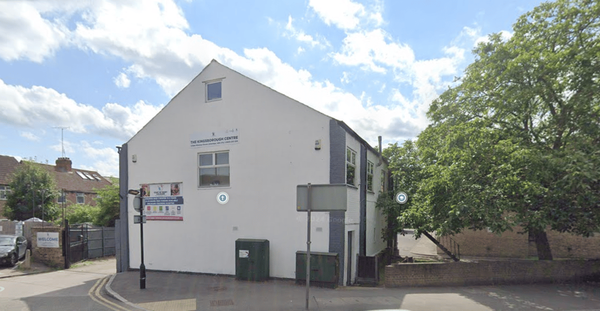
She is the Amal to Malcolm Turnbull’s George Clooney, the Joan Didion to his John Dunne.
Lucy Turnbull AO, first female lord mayor of Sydney, chairman of Prima BioMed and philanthropist will soon add Australia’s “first lady” to her long list of titles.
Malcolm’s match intellectually, business-wise and in wit, Lucy has a long history of public service and commercial success, independent of her husband and also as half of a hyper-successful partnership which has at times extended beyond the personal and into business.
Now each other’s most trusted advisers and enthusiastic cheerleaders, the couple met when she was just 19 and he 23 in the office of her QC father, Tom Hughes, who was Australia’s attorney general from 1969 to 1971.
That is a story oft repeated by the two of them and, since then, Lucy has been a lawyer, a councillor, deputy mayor and then the first female lord mayor of Sydney, chairman of the cancer treatment company Prima BioMed, on the board of the Biennale of Sydney, a published author, a director of the private investment bank Turnbull and Partners, aligned with the Redfern Foundation which supports Aboriginal-run businesses in inner Sydney, and has served on multiple charities’ boards – helping to raise so much money for medical, social welfare, educational and cultural organisations that she was appointed an officer of the Order of Australia.

She has also served on the boards of the National Portrait Gallery, the Museum of Contemporary Art, the Australian Museum and the Sydney festival, and as a commissioner of the Australian pavilion at the Venice Architecture Biennale.
“I have never seen myself as an appendage [of Malcolm], as anyone who knows me will tell you,” Lucy told the Sydney Morning Herald in 2011. “My roles have sometimes been less visible but we were a very good team.
“My desire to make a positive contribution to the planet, to my community, has been a strong motivator for a long time. But you don’t get the opportunity to do much about it until you have the experience and confidence. When I decided I had both, I tried to make a difference.”
Lucy has spoken about her private nature, acknowledging it is at odds with her decision to run for the City of Sydney council, where she went on to become deputy mayor in 1999 and lord mayor in 2003. Her strong sense of public duty informed that decision, she said. While she has always supported her husband’s desire to go into politics, she told the ABC she was “freaked out” at the prospect when she was 23, thinking she was too young to become a political spouse when Malcolm made his first failed attempt at preselection for the seat of Wentworth.
The two worked together over the next two decades in various ventures, including the infamous Spycatcher case in which Malcolm served as barrister. While he was the one in front of the cameras Lucy also worked on the case doing legal research.
Malcolm describes Lucy as bouncing, optimistic, able to light up a room. He wrote in February in the Australian Women’s Weekly: “Over the years, we have grown together. It is almost impossible to imagine, let alone remember, what it was like not to be together, so much so that I have a much clearer sense of ‘Lucy and me’ than I do of ‘me’.”
Lucy herself has presented a more reserved public face, telling journalists she does not enjoy interviews and describing herself as the more reserved half of the couple.
The seeds of her carefulness in the public eye were planted when she was a child and her father was attorney general during the Vietnam war.

“So he was having to prosecute people who breached the National Service Act,” she told the ABC, “and I think one of them might have been my great uncle, who was a poet, my mother’s uncle Robert Fitzgerald and I remember we were … I don’t know why we did this, but there was a photograph of us on the front page – I think it was the Mirror or the Daily Telegraph, I can’t remember – when I was a little girl, like I was in sixth class at school.
“I guess that kind of jolted me. ‘This is the poor family’, I think the story was, ‘This is the poor family where the husband’s trying to put the uncle in jail’ – something like that. I don’t know, it just really intruded on my sense of what I thought was, you know, made me comfortable.”
The experience may have also given Lucy her steel. She did not blink two years ago when her stake in Prima BioMed halved to $728,142. She held on and by May the stock had bounced back to be worth $5.5m.
Together the two Turnbulls are worth $186m, most of it earned by the pair of them, but Lucy has said she doesn’t feel wealth is part of any “essence” of her.
“I don’t think about money when I wake up in the morning, or wealth or anything, and I don’t think many people do, truthfully,” she told Australian Story.
“It’s not an important part of who I think I am, so I can understand why people focus on it from a news sort of perspective but … in public life you’ve got to sort of say, ‘OK well they can talk about that and they say it’s a disadvantage.’ Truthfully, I think it’s more of an advantage to have at least some politicians with a proven ability at financial management and having the imagination and the capacity to make money.”
She and Malcolm have two children, Daisy and Alex. Lucy has spoken about Malcolm’s desire for more and the miscarriages in the early 1990s that meant they stopped at two. “I think in an ideal world Malcolm would have had 10 children and the problem with that was that, as I said to him, I don’t really mind how many children you have but you’re having two with your first wife!” she once said.
Lucy’s self-employed status and flexibility have helped her support her husband in politics and given a glimpse of the type of prime minister’s wife she is likely to be.
She is expected to keep working and her charity work will certainly continue, although with added publicity. Though she will be on hand when needed for media calls and important events, it does not seem probable she will embrace the spotlight. Then again, Australian prime minister’s wives who have done so have been few and far between.







